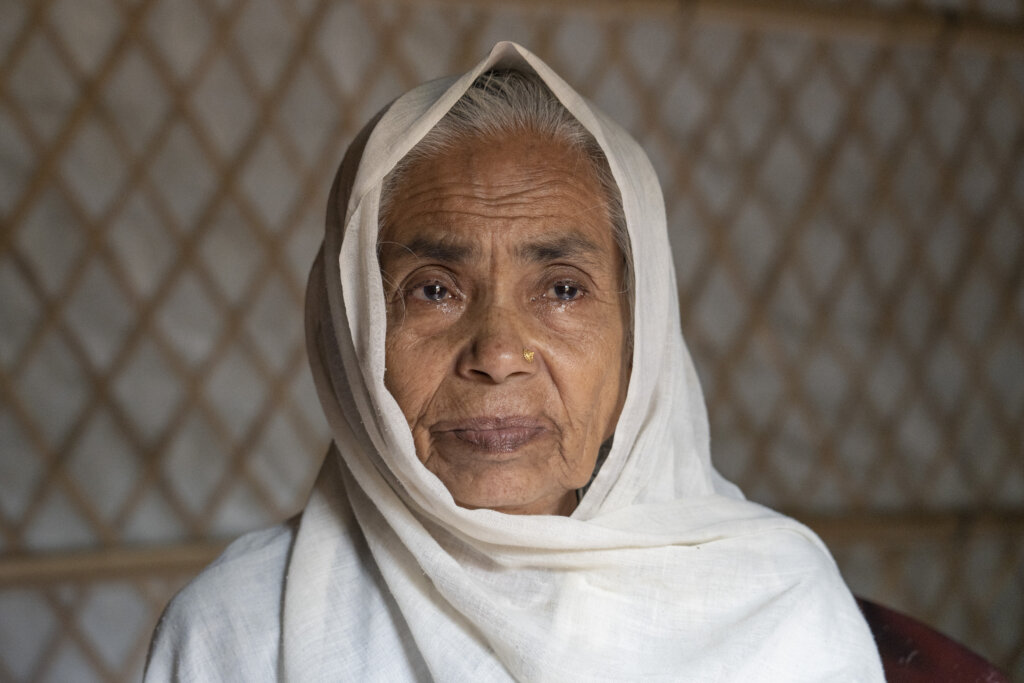By Wida Arzow Azizi | Development Coordinator, Concern Worldwide US
As we enter the summer months of 2023, an escalation of violence that began in 2017 against the Rohingya population in Myanmar’s Rakhine State continues to have devastating impacts on this historically oppressed ethnic minority group. It is estimated that nearly 1 million Rohingya refugees have fled into the neighboring country of Bangladesh, residing mostly in Cox’s Bazar, (a historically low-income area) where they continue to be faced with an array of issues that threaten their present and future ability to lead sustainable lives on their own. As of May 2023, circumstances have worsened even further after a powerful cyclone, known as Cyclone Mocha, hit the coastlines of Bangladesh and Myanmar, causing calamitous damage and further crippling communities that were already in need.
Cyclone Mocha has severely exacerbated issues faced by the Rohingya population in Bangladesh and an estimated 28,000 refugees were impacted. Danger is still posed by landslides, soil erosions and floods following what was the equivalent of a category-five storm, and the widespread damage has made the work of agencies like Concern Worldwide even more crucial. In Cox’s Bazar, Cyclone Mocha damaged four out of eleven nutrition centers including a stabilization facility for sick children and several bamboo shelters across the refugee camp. In communities in the wider Cox’s Bazar area, three schools and over 1,800 shelters were damaged, and over 6,000 gardens and a banana yard with 10,000 trees were destroyed.
As Early Warning Systems kicked in, our team in Cox’s Bazar quickly kicked into action with plans put in place and stocks of food prepositioned. In the wake of this deadly cyclone, Concern’s team provided over 2,800 hot meals to families in shelters and prepared to ramp up our response further to meet the growing needs of Rohingya refugees and host communities. Our work continues as we attempt to alleviate the suffering brought on by this devastating cyclone in refugee camps and host communities, including the continuance of livelihood programs, distribution of food vouchers, access to health and nutrition services, disaster risk reduction programs and shelter rehabilitation.
For generations, the Rohingya have been stuck in a chronic cycle of poverty caused by lack of state recognition, limited access to education, jobs and health services as well as constant food and supply shortages. Historical violence targeting this population has caused several mass displacements, and their struggles continue even as they are forgotten about by the world. Prior to Cyclone Mocha, the large influx of Rohingya refugees had already placed a major strain on Bangladesh, where 25% of the population is estimated to be food insecure, as the government struggles to meet the need of their own citizens and refugees. Limited supply of resources has caused socio-economic tensions to arise between refugee and host communities in Bangladesh, and in response Concern has implemented nutrition and livelihood intervention programs that expand to be inclusive of the needs of host communities as part of our long-term development work.
The Rohingya refugee crisis has been largely absent from headlines since the initial attacks launched against them six years ago, but they remain the world’s largest stateless population. Climate change has hit Bangladesh hard with increasingly severe weather patterns, especially during monsoon season. The risks experienced during monsoon season are magnified for those living in refugee camps, where informal housing and settlements have been routinely destroyed by fire and flood. As they attempt to rebuild their lives in overcrowded and underfunded refugee settlements, Rohingya refugees must also live with the constant threat of dangerous weather looming over their heads. Seasonal flooding and limited access to proper water, hygiene and sanitation services in refugee camps also foster conditions that lead to the outbreak of waterborne illnesses like cholera and diarrhea, creating major public health concerns. To reduce the common barriers to health access faced by refugees, part of our response to the crisis has been initiating the Smart Health Card program, a tool for financing support for subsidized healthcare for poor families. Concern is one of the leading nutrition agencies in the Rohingya response, and we continue to provide lifesaving and preventative nutrition services through our programs to 17 camps and host communities in Cox’s Bazar.
Unfortunately, Cyclone Mocha is just the most recent disaster endured by the Rohingya people. The Rohingya have been subject to a long history of oppression, and since 2017, refugees in Cox’s Bazar have been met with multiple barriers to a life of safety and stability since fleeing violence targeting them in Myanmar. Concern Worldwide has had a presence in Bangladesh for over 50 years and since the start of the crisis we have rapidly scaled up our operations to address the humanitarian needs of the large influx of Rohingya refugees. We continue to respond to the needs of refugees as they face various changing and growing issues, and we remain committed to alleviating the suffering of this historically persecuted population.
Project reports on GlobalGiving are posted directly to globalgiving.org by Project Leaders as they are completed, generally every 3-4 months. To protect the integrity of these documents, GlobalGiving does not alter them; therefore you may find some language or formatting issues.
If you donate to this project or have donated to this project, you can recieve an email when this project posts a report. You can also subscribe for reports without donating.
Support this important cause by creating a personalized fundraising page.
Start a Fundraiser